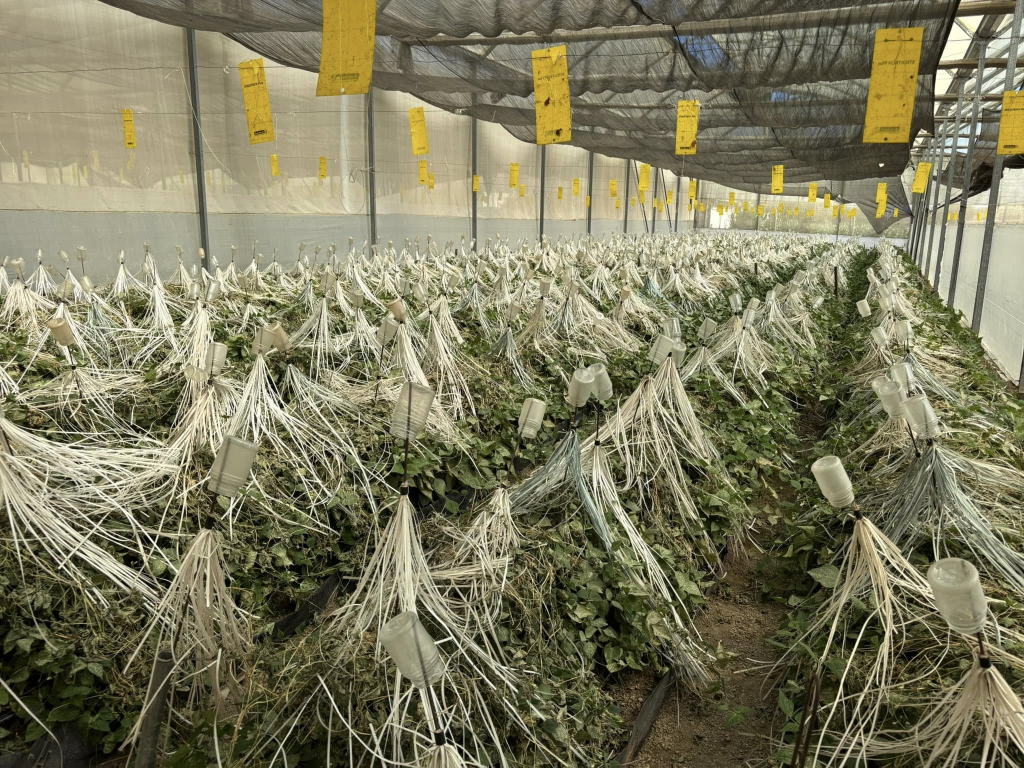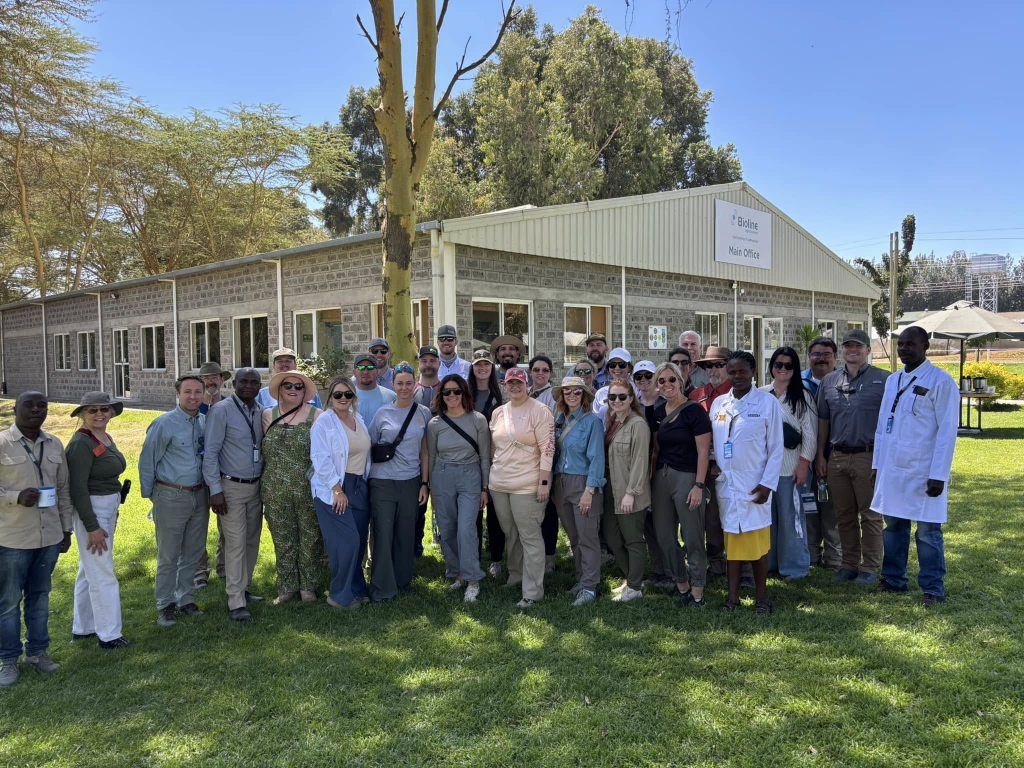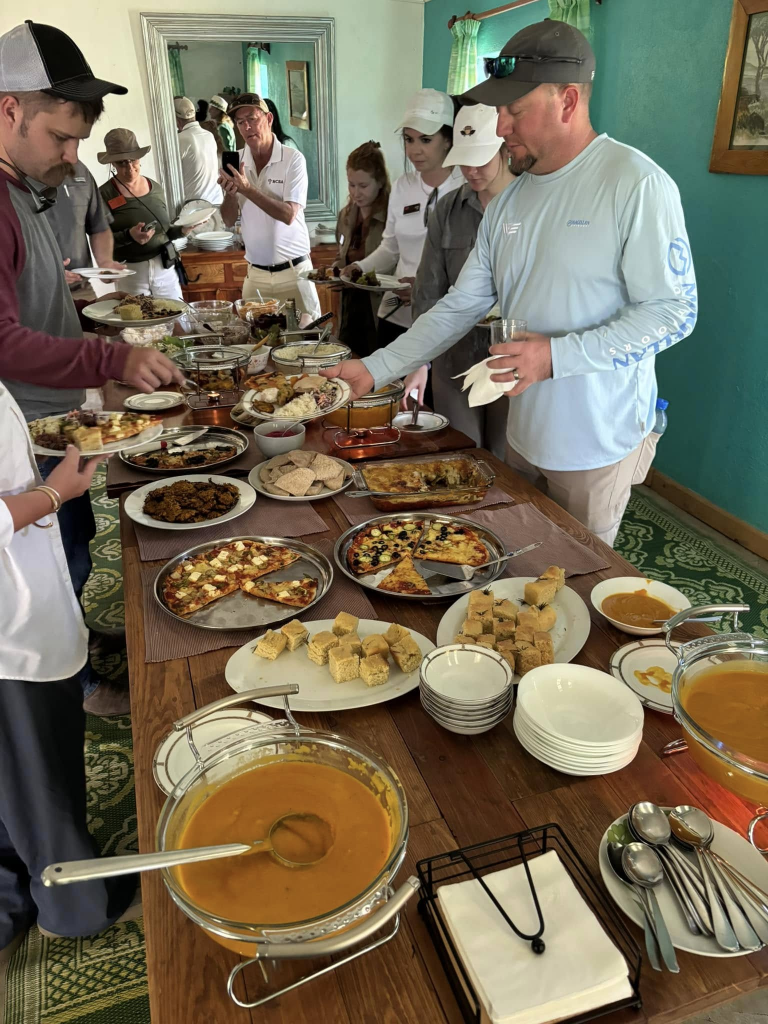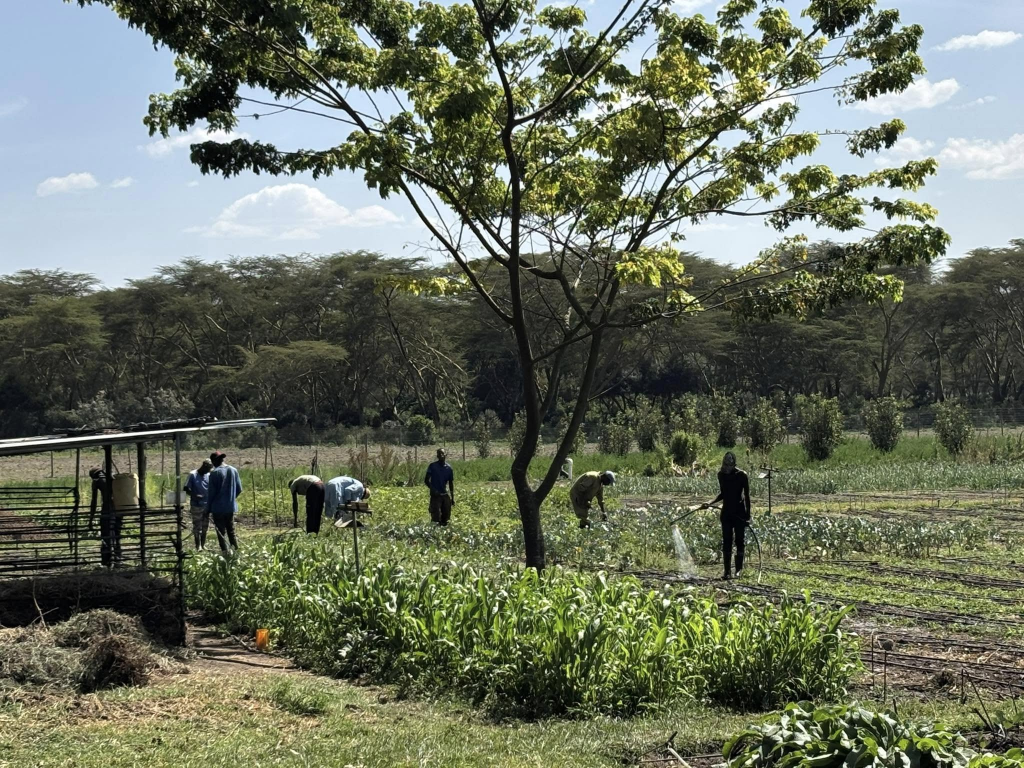
We continue to share comments from the Director of the Oklahoma Ag Leadership Program Edmond Bonjour (and also from Rose Bonjour) as Class XXI travels across parts of Kenya for their International Capstone study experience. This story includes stops made on Thursday, February 27, 2025
Thursday, the OALP began the day with a visit to Dudutech, a Bioline Agrosciences group company – the largest biological production facility in sub-Saharan Africa. (Rose points out that Dudu means insects in Zahili.) They are leaders in Integrated Pest Management (IPM) with a wealth of experience in designing and delivering about 50 control products of which 17 are biological control agents.
Integrated Pest Management (IPM) is quite complex. Education is a huge component of what they do. With the need to feed 10 billion people by 2050, solutions must to be created. Climate change is impacting production, conventional ag may add to the greenhouse effect, and soil degradation is happening. It’s time for a paradigm shift.
Physical (trapping), biological (natural predators), cultural (crop rotation), companion crops and chemicals are all ways to control pests. Steps to successful IPM includes 1) identifying pest, 2) understanding the pest, 3) monitor crops (which is the backbone of IPM), 4) make a decision – when to act, 5) take action, 6) assess results.
Established in 2001, Dudutech has rapidly grown into a global biotechnology business, employing leading entomologists, agronomists, and microbiologists to develop solutions to reduce pesticide use, and improve soil health and long-term sustainability in agriculture. Sustainability is achieved when balance is created with the three Ps – people, profit, and planet. They have 18 hectares of greenhouses and over 400 employees. The products reach their world-wide customers within 72 hours.

We toured the greenhouses growing red spider mites and its predatory mite, Phytoseiulus persimilis. It takes 8 weeks to grow the mites. They harvest the predatory mites by allowing them to crawl up white spider-looking strips into a bottle. These mites are maintained in a cold environment from the greenhouse to processing. One gram of predatory mites contains 100,000 mites and sells for $1.20 USD per 1,000 mites. They also grow fungi for the control of whiteflies, thrips, snails, slugs, snails, and nematodes. Mating disruption and sterile male techniques are used to control coddling moths in orchards.


The OALP had an organic lunch at Ecoscapes followed by a tour of the property. Richard and Alexandra Bell bought a 180-acre soybean farm in 2014 on the west shore of Lake Naivasha and from it they developed a unique mixed-use community called Ecoscapes Sanctuary.


The owners took out a massive loan to buy the 180 acre farm. They converted 30 acres for organic vegetables in 2015. Organic farming was relatively new in Kenya and it was a disaster. After a year they shut down, stepped back and assessed what to do. They sold off two-acre lots invest into Ecoscape. “You battle on. Pick yourself up and march on.” They are down to 20 acres of organic vegetables (too small and need to diversify), 80 acre wildlife sanctuary with an easement so nobody can buy too close. There has been a lot of human/wildlife conflict and they wanted to protect the wildlife.
Security is a huge cost. If you buy a plot, you have full permission to visit the sanctuary. They have been watching a 92 acre plot and recently signed a longterm lease on that land. 60% sanctuary, 40% organic and the tourism.
Our host’s husband is over cloud implementation for Amazon of Middle East and Africa infrastructure. They have four kids. Her husband drives the infrastructure and she does the farming. “This is us.”
She wants to make a difference and. “Let food be thy medicine and medicine be your food.”
Alex states that they are growing organically because there are many unregulated pesticides in Kenya, climate change, environmental degradation, and pest resistance to pesticides. They are trying to build the soil through minimum tillage, crop rotation, and utilizing compost. Healthy soil = Healthy plants. Propagation of plants is conducted on-site. Ecoscspes employs 75 people, over 50% of which are women and youth.

As Class XXI continues to travel across Kenya- the application for Class XXII is now available on line at the OALP website. Click here for that application– which is due by May first, 2025. In person interviews will happen in June and the XXII will meet for the first time in August of this year.

















